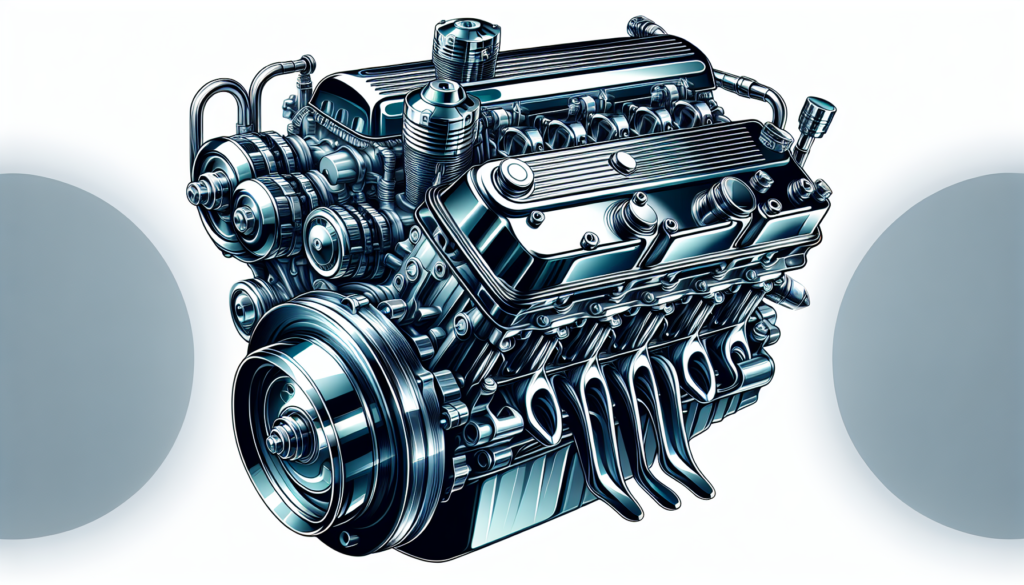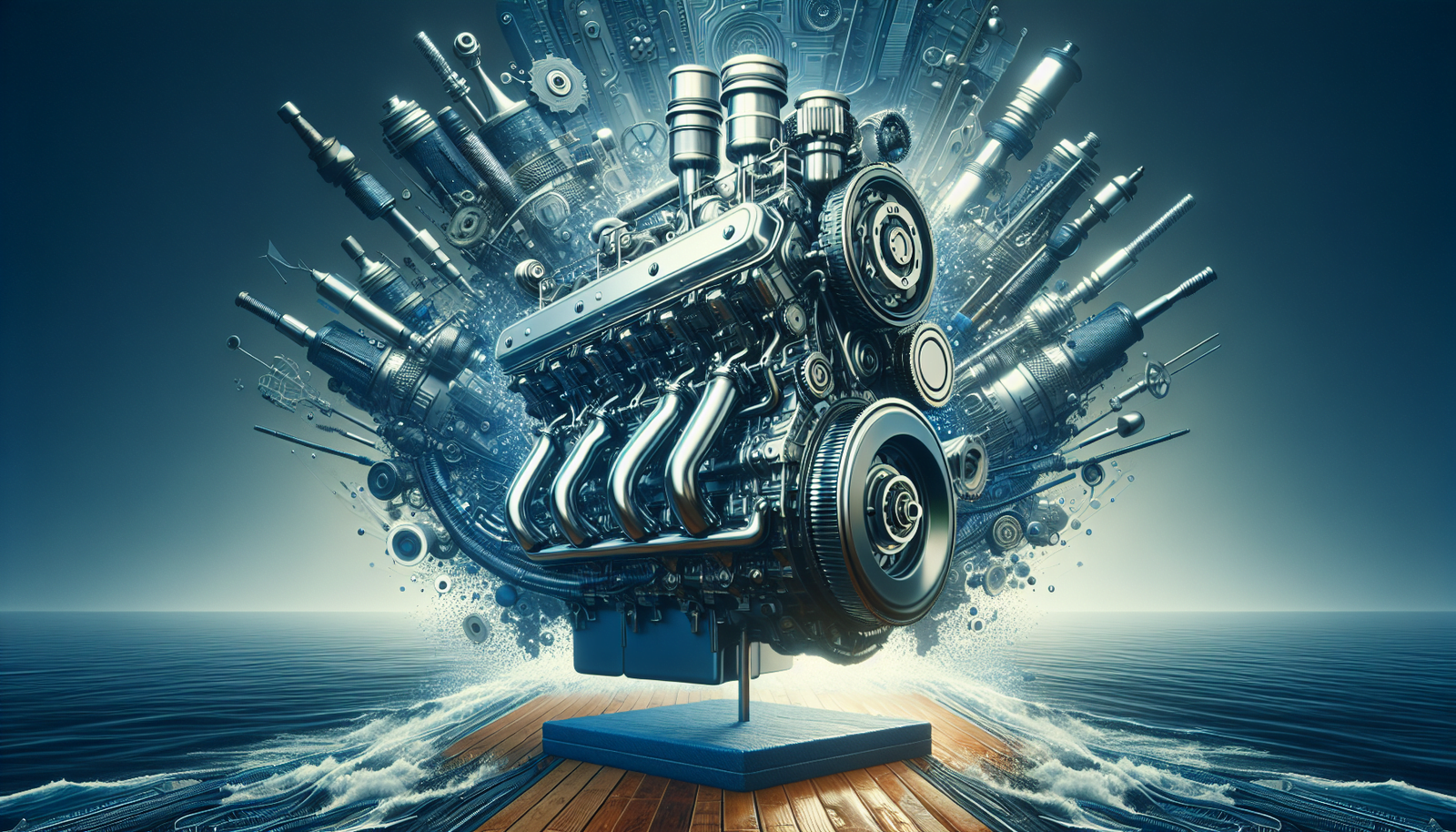Imagine yourself out on the open water, the sun shining, and waves lapping against your boat. Suddenly, your boat engine chokes, the tranquility is disrupted, and your perfect day turns into a nightmare. To keep such unfortunate situations at bay, the piece “Essential Boat Engine Maintenance For A Smooth Sailing Season” will be your guide. It is packed full of essential tips and preventative measures that can ensure your boat’s engine remains in top-notch condition throughout the sailing season. So, get ready to adjust your sea legs and learn the secrets of keeping your engine humming flawlessly as you navigate the waters.

Understanding the Importance of Boat Engine Maintenance
When you’re on the water, the last thing you need is engine trouble. Boat engine maintenance is crucial to ensure smooth sailing when embarking on voyages. It’s more than just keeping the engine running. It plays a significant role in assuring safety, optimizing fuel efficiency, extending the life of your boat engine, and preventing expensive repairs and replacements later on.
Ensuring safety during voyages
Regular boat engine maintenance primarily ensures that all components of the engine are working as they should, thus maximizing the safety of voyages. Since the open water can have unpredictable conditions, you wouldn’t want to end up stranded due to engine failure. Also, a well-maintained engine reduces the risk of fire, an essential aspect of safety on board.
Increasing the lifespan of your boat engine
Like any piece of machinery, your boat engine will last longer with regular inspections and maintenance. A well-maintained engine is efficient, less prone to breakdowns, and its lifespan is significantly improved. Your boat engine is a considerable investment; why not protect it?
Improving performance and fuel efficiency
Routine maintenance ensures the engine is running as efficiently as possible. This not only means that the engine performs better but also, it can improve fuel efficiency. Maintenance tasks such as replacing worn-out parts, cleaning spark plugs, and keeping fuel lines clean can significantly increase your boat’s engine performance.
Preventing expensive repairs and replacements
Regular small-scale maintenance can prevent costly repairs and replacements in the future. By identifying and addressing minor issues before they escalate, you can save a lot of money and avoid the inconvenience of major mechanical work.
Basic Tools and Equipment Needed for Boat Engine Maintenance
Before you start with the maintenance, it’s vital to have the correct tools on hand. The following are basic tools and equipment you’ll need for boat engine maintenance:
Set of wrenches
A good set of wrenches is essential for tightening and loosening nuts and bolts. Different parts of the engine may require different sizes, so it’s best to have a complete set.
Pliers
Pliers are another must-have tool for maintenance. They help you grip, twist, hold, tighten, or loosen parts. Long-nose pliers are particularly useful for reaching into tight spaces.
Screwdrivers
Screwdrivers of various sizes are required for removing and inserting screws. Make sure to have both flathead and Philips head screwdrivers in your toolkit.
Oil extractor pump
An oil extractor pump is a needful tool when it’s time to change the oil. It allows you to easily remove the old oil from the engine.
Spark plug gap tool
A spark plug gap tool is used to check and adjust the gap of spark plugs, ensuring they function correctly.
Battery hydrometer
A battery hydrometer helps determine the state and health of your boat’s batteries. By measuring the specific gravity of the battery fluid, you can detect if it requires charging or replacement.
Digital multimeter
A digital multimeter helps you test the electrical circuits in your boat. Use it to measure voltage, resistance, and current in the electric parts of your engine.
Routine Checks and Maintenance Tasks
Regular checks and routine maintenance tasks can prevent minor issues from turning into major problems. It’s recommended to have proper schedules to perform these tasks.
Daily checks before venturing out to the waters
Simple daily checks before you set out can prevent mishaps. Check the engine oil level, coolant level, and ensure there are no fuel leaks. Observe the condition of the belts, and make sure all electrical components are working correctly.
Weekly/monthly maintenance tasks
On a weekly or monthly basis, take the time to check the fuel lines for leaks or damage. Inspect the condition of spark plugs, change fuel filters if necessary, and check the tension of engine belts.
Annual maintenance procedures
Once a year, it’s advisable to have a thorough inspection and maintenance. Professional help might be required here, especially to check the in-depth parts of your boat engine. Parts like the heat exchangers, propshaft, and bottom paint should be checked.

Engine Oil and Filter Change
Engine oil lubricates, cools, cleans, and protects the moving parts of the engine. Over time, the oil gets contaminated and loses its effectiveness.
Determining when to change engine oil and filters
Most manufacturers recommend changing the engine oil and filters at least once a year. But if you use your boat heavily, it might be necessary to do it more frequently. Always refer to the engine manual to follow the manufacturer’s guidelines.
Choosing the right oil and filters for your boat engine
Using the right oil and filters is crucial for the engine’s performance. Check your boat’s manual for recommendations on oil type and filter specifications. Never compromise on the quality of oil and filters; it directly affects the longevity of the engine.
Steps to replace engine oil and filters
Replacing engine oil and filters is a straightforward task, especially if you have the right tools. Begin by warming up the engine, it helps the oil to drain faster. Use an oil extractor pump to remove the old oil. Remove the old filter and install a new one as per the manufacturer’s instructions. After that, refill the oil to the proper level.
Fuel System Maintenance
The fuel system is the heart of the boat engine. Regular maintenance ensures the fuel is delivered to the engine efficiently.
Inspecting and cleaning fuel lines
Over time, fuel lines and hoses can degrade, leading to leaks. Regularly inspect them for cracks or any signs of wear. If a hose is damaged, replace it immediately. Keep the fuel lines clean to ensure uninterrupted fuel delivery to the engine.
Changing fuel filters
Fuel filters trap any debris that might be present in the fuel, preventing it from reaching the engine. Over time, these filters get clogged and need replacement. Change them as per the manufacturer’s guidelines.
Checking and maintaining fuel tanks
Fuel tanks need to be inspected for any signs of leaks or corrosion. Make sure the tank is not overfilled, as this can lead to fuel loss and increase the risk of a fire.
Cooling System Maintenance
The cooling system plays a crucial role in preventing overheating which could cause engine damage.
Checking and maintaining coolant level
Check the coolant level regularly. If it’s low, top it off as needed.
Inspecting and replacing coolant hoses
Check the coolant hoses for any signs of wear and tear. A worn-out hose could lead to a coolant leak, which could result in overheating.
Cleaning heat exchangers and replacing coolant
Heat exchangers and coolants should be maintained as per the manufacturer’s guidelines. Clean the heat exchangers annually to prevent the buildup of deposits. Replace the coolant during every annual maintenance service.
Maintaining Engine Belts
Engine belts that are poorly maintained can break, causing the engine to shut down.
Checking tension and condition of engine belts
Inspect the belts for any signs of wear like fraying, glazing or cracking. Also, check the tension of the belts; a loose belt can slip, while a very tight one can cause strain on the bearings in the water pump and alternator.
Replacing worn-out belts
If you notice any signs of wear, replace the belt immediately. A failure in the belt can lead to overheating and burning of the alternator.
Keeping spares onboard
It’s a good idea to keep spare belts onboard. In case a belt breaks while you’re out at sea, you’ll be able to quickly replace it and continue your journey.
Electrical System Maintenance
A reliable electrical system is crucial for your boat’s operation and safety.
Inspecting wiring, fuses and connections
Regularly inspect wiring and connections for any signs of damage or corrosion. Ensure that all fuses are of the correct rating, and promptly replace any that have blown.
Checking battery levels
It is crucial to maintain battery health. Regularly check the battery levels and charge when necessary. Using a battery hydrometer will assist in determining the health of the battery.
Ensuring functioning of alternator and starter motor
Your boat’s alternator and starter motor should be serviced as per the manufacturer’s guidelines to ensure their efficient running. A faulty alternator will not charge the battery properly, and a malfunctioning starter can leave you stranded.
Spark Plugs Maintenance
Spark plugs are small but essential components of the engine that ignite the air-fuel mixture in the engine cylinders to power the boat.
Checking spark plugs for wear and tear
Inspect spark plugs for any signs of wear and tear. If a spark plug is sooty or oily, it may indicate underlying engine problems that need attention.
Cleaning and gapping spark plugs
Spark plugs should be cleaned at regular intervals to maintain their performance. Use a spark plug gap tool for adjusting the gap between the electrode and the ground terminal.
Replacing faulty spark plugs
Replace any spark plugs that show signs of damage or are worn out. Always carry spare spark plugs on your boat as a safety measure.
Professional Inspection and Servicing
While regular DIY maintenance can go a long way in keeping your boat in good condition, there are times when professional help is needed.
When to seek professional help
If you detect any major issues during your routine checks, it’s advisable to consult, or get help from a professional. Also, scheduling professional servicing annually even if there are no apparent issues will help in maintaining your boat optimally.
Vetting and choosing a marine mechanic for servicing
Always choose a qualified and experienced marine mechanic for servicing. Check their credentials and ask for references to make sure you’re dealing with a professional.
Understanding common issues observed by professionals
Professionals can help identify and address common issues like compression problems, fuel system issues, drive failures, and more. They can provide useful maintenance tips tailored for your particular boat engine. They also guide you on when it might be time to consider an engine overhaul or replacement.
Regular maintenance and care for your boat engine will reward you with a reliable and pleasurable boating experience. Always follow the manufacturer’s guidelines and don’t hesitate to seek professional help for comprehensive engine maintenance. Happy Sailing!

